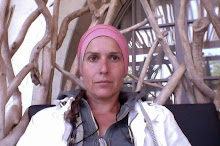Montag, 8. Juli 2013
Yes, Krishnamurti discuss eating animals and being vegetarian in some of his works. DR E. W. ADIKARAM The following is from an article written by Prof. Mahinda Palihawadana to Sri Lanka newspapers in connection with a symposium held on Dec 28, 2000 at the J. R. Jayewardene Cultural Centre, Colombo, in appreciation of the services of Dr Adikaram, founder of the Sri Lanka Vegetarian Society. Prof. J. B. Disanayaka (Colombo University), Mr Vipin Chand from Chennai, India, Cardiologist Dr D. P. Atukorale, Mrs. Penny Jayewardene (Poorna Health Care Trust) and SLVS President. Mahinda Palihawadana participated as panellists at the symposium. The relevance of vegetarianism for the creation of a cruelty-free and healthy society was a principal topic of discussion. Dr E W Adikaram’s 15th death anniversary falls on Dec. 28, 2000. He can be counted among the few very uncommon public figures of Sri Lanka during the 20th century. Dr Adikaram began life as an ardent traditional Buddhist. Listening to a talk at the Dhamma (Buddhist religious) school at age 14, his compassion for animals was heightened and he gave up meat-eating. He remained a vegetarian to the very end of his life. In later times he said that he was vegetarian not in order to gain religious merit or avoid its opposite, but simply because meat came from the killing of animals. As a young man, he entered Colombo University College (then an affiliate of the University of London) and did the first-year examination with science and mathematics, but later switched to the study of Pali and Sanskrit. He proceeded to England on a government scholarship and did graduate studies at the London School of Oriental Studies, securing a master’s degree in 1931 and the Ph.D. in 1933, based on the thesis “Early History of Buddhism in Ceylon” which has been hailed as a model of careful research. On his return, he obtained a teaching position at Ananda Sastralaya, Kotte, a grant-aided school run by the Colombo Buddhist Theosophical Society (BTS), saying he would not serve under the British government in any capacity. Having read documents on the administration of Ceylon at the British Museum Library, he felt deeply aggrieved and was keen to join forces with others who worked for a nationalist and Buddhist revival and the overthrow of the imperial yoke. A personal friend of Drs N.M. Perera and Colvin R. de Silva, who went to become stalwarts of the Leftist Movement of Sri Lanka, he would have joined them in their LSSP political party, but for the fact that he was totally against the use of violence to achieve any purpose whatsoever. He had already become an admirer of Mahatma Gandhi, and joined the Navajeevana movement of Mr. Jayawardhana of Wellampitiya, a Gandhian who changed his name to Jayaramdas and advocated the wearing of home-spun khadi and the consumption of country rice in place of imported foods that were then fashionable among the middle class people of the time. In 1934, Dr. S.A. Wickramasinghe, then General Manager of BTS schools, asked Dr Adikaram to take over the Principalship of Ananda Sastralaya. Dr Adikaram lost no time to create in his school what he envisioned as a true Buddhist atmosphere. He made the diet of the students’ hostel vegetarian and tobacco and alcohol were forbidden within the premises, whatever the function or occasion. In spite of his detractors, whose main complaint was that he was an ‘extremist’, Dr A. became a hugely successful Principal. He championed the cause of Buddhist education and campaigned against Christian missionaries, although he entertained a profound respect for the personality of Jesus Christ. The name Adikaram became a household word among Buddhist workers all over the country and a bye-word for honesty, forthrightness and courage of conviction. His school was a unique institution and those who passed through its portals imbibed the Adikaram spirit at least to a little extent. For many, it was a privilege to be part of the team. If Dr A. was ‘extremist’ in that he was for going the whole way with his principles, he was no less unconventional when it appeared to him that his ‘principles’ themselves may be suspect. ...more at http://www.infolanka.com/org/slvs/adikaram.htm Sources: http://www.infolanka.com/org/slvs/adikaram.htm
Abonnieren
Kommentare zum Post (Atom)

Keine Kommentare:
Kommentar veröffentlichen